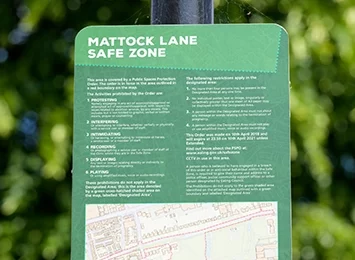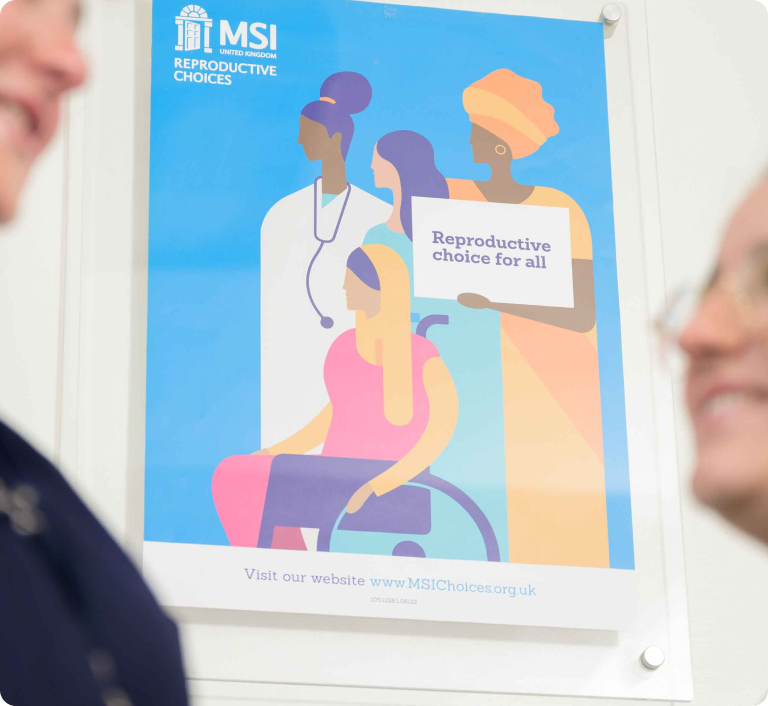Updated 14th March 2025
In the UK, one in three women has an abortion by the time she is 45, and 90% of the population is pro-choice. Abortion is understood to be healthcare, and healthcare is recognised as a human right. So why has abortion remained within criminal law for so long? In this blog, Louise McCudden – Head of External Affairs at MSI Reproductive Choices UK – explains why this is the right time to decriminalise abortion in Great Britain.
Since the Abortion Act 1967, we’ve seen tremendous leaps forward in reproductive healthcare, and in gender equality.
Yet somehow abortion law has not kept up with the realities of how abortion care is understood, accessed, or provided.
In the UK, one in three women has an abortion by the time she is 45, and 90% of the population is pro-choice. Abortion is understood to be healthcare, and healthcare is recognised as a human right.
So why has abortion remained within criminal law for so long?
Part of the reason is that many people, perhaps even most, do not realise abortion wasn’t decriminalised when the Abortion Act was passed. The Act established specific criteria which, when met, make abortion legal, but it did not remove abortion from criminal law.
Abortion is still criminalised under the Offences Against the Persons Act 1861 and the Infant Life Preservation Act 1929. These laws were passed, especially the former, by societies which were profoundly different from the one we live in today, especially with regards to the two areas most central to abortion care: medicine, and gender equality.
We believe that across the whole of the UK, abortion should sit outside criminal law.
It is generally accepted that modern medicine is about informed consent, and that clinicians make decisions based on the best interests of the person seeking treatment. It is generally accepted that women have the right to bodily autonomy and can make choices about their own lives which need not centre around pregnancy or motherhood. It is also generally recognised that healthcare policies should be provided in line with best clinical practice and should always be based on medical evidence.
While the common interpretation of the current law does allow most people who want an abortion to get one, the law makes getting an abortion more difficult, and more stigmatised, than it needs to be. The law forces everyone to seek the approval of not just one, but two doctors. Although abortion providers like MSI Reproductive Choices UK can arrange this for the person accessing care, keeping their pathway as simple as possible, the very fact that we require the approval of two doctors, reinforces the outdated idea that women don’t know what is best for our own bodies, and that we need permission from an outside party before we can make our own reproductive decisions.
Aside from the implications for gender equality, the ‘two doctor signature’ requirement is an extremely inefficient way to provide care, and it has no clinical basis behind it whatsoever. The health workforce is under tremendous pressure at the moment, and any unnecessary bureaucracy that can be taken away from doctors and nurses without impacting healthcare outcomes should be removed.
And let’s be clear: decriminalisation doesn’t mean deregulation. Abortion care should be regulated the same way that any other comparable form of healthcare would be. In fact, despite being extremely safe and extremely common, abortion is one of the most heavily regulated areas of healthcare available – and none of that need change with decriminalisation.
What would change is the rare but highly distressing occurrence of incidents in which women have faced criminal investigation, or even prison, for ending their own pregnancies – and in extreme cases, for experiencing a miscarriage or stillbirth.
Abortion is a personal choice, and it is a medical service. Criminal law has no part to play in assessing who should or should not be denied access. Most people who have an abortion do so within the law. The small minority that does resort to finding ways of ending a pregnancy outside the limits of the law usually do so under very tough circumstances, and usually for complex reasons.
For example, imagine a girl who has been raped, and does not recognise the signs of pregnancy until it is too late. Imagine a woman in an abusive relationship who is unable to access abortion through a legal service provider without her partner finding out. Imagine a woman who simply does not realise that she is acting outside the law when she orders abortion pills over the internet without consulting a doctor.
Whatever you feel about situations like these, it is difficult to see what public interest justification there could be for criminalising people who end their own pregnancies. That’s why we say abortion should be removed from criminal law altogether, and regulated simply as healthcare.
If you agree, join MSI Reproductive Choices and the many global bodies supporting decriminalisation* in supporting the decriminalisation of abortion in Great Britain.
* Including the World Health Organisation, the Royal College of Obstetrics and Gynaecologists, and the International Federation of Gynaecology and Obstetrics
You can read our position paper on the decriminalisation of abortion care in Great Britain, where we set out our position and six key recommendations, here: Position Paper: Decriminalisation of abortion care in Great Britain.
How can you support the decriminalisation of abortion care in Great Britain?
- Share this blog and spread the word: Help us spread the word about the need to decriminalise abortion in Great Britain by sharing this blog with your friends and family.
- Ask your MP to vote in favour of decriminalising abortion: You can help by writing to your MP and asking them to vote in favour of decriminalising abortion, any time there’s an opportunity to do so in the House of Commons. To find your local MP, click here: Find Your MP.










































